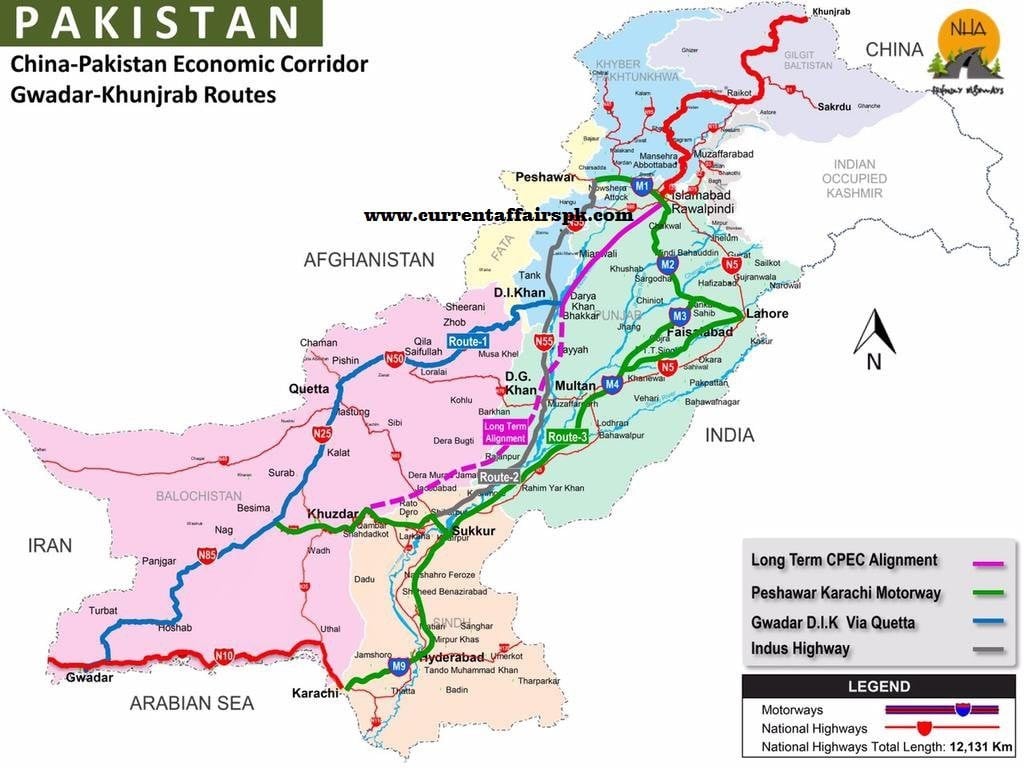
Are provinces prepared to cash in on the CPEC investment?

A big question to understand after the passage of 18th Amendment to the constitution is that whether the four federating units are provinces in letter and spirit or are countries in shape and authority within the geographical boundaries of the country. The chief ministers of the four provinces enjoy the same authority as the prime minister and have vast financial resources on their disposal along with official machinery to govern and implement programmes of their choices.
The provinces too have standard operating procedures to run the administrative affairs, but they can also pass bills in the provincial assemblies to write their own constitutions. If the federal government and the prime minister enjoy various powers, the offices of the chief ministers also contain unlimited authority. If this is the situation, the chief ministers are not only responsible for the administrative affairs of their territories, but also for economic development of the masses.
Pakistan is probably the only country in the world with uneven distribution of population and land area. The population of Punjab is over 100 million, more than Iran, Turkey and Egypt whereas Balochistan covers 42 per cent area of the country with only seven per cent population. There is a need to create more provinces not on ethnic or geographical lines, but on administrative basis. If the government is unable to do this at this point of time, at least the provincial heads of the government should realise their responsibilities and take steps to change the standard of living of their people.
When Turkey is developing with 70 million population, Malaysia with 35 million population and UAE with two million population, what the chief ministers need more other than administrative powers and vast financial resources to put their provinces on the road to prosperity. They are ruling their people, but showing interest only in their personal affairs and if this state of affairs continues, the nation will never achieve the cherished goal of wellbeing and prosperity.
Fortunately, the China Pakistan Economic Corridor passes through the four provinces and huge Chinese investment is likely to pour in soon. However, it is yet to be seen how much our chief ministers are prepared to receive investment to their territories.
Iran is also emerging as a new economic power in the region after lifting of economic sanctions in view of its nuclear deal with world powers. China and Iran have recently signed various agreements to expand their bilateral trade up to $600 billion in 10 years. The scope of the economic corridor can be extended to Iran whereas Gwadar and Chabahar port can grow together and supplement each other.
The world is changing and Pakistani leadership also needs to change their mindset as old methods are no more valid to boost trade and economy. The Indian territory is locked from three sides -- west, north and south by Pakistan and China -- and it has to develop friendship with Islamabad if it wants to access the markets of central Asian states.
Iran is emerging from years of economic isolation and it is not only establishing strong economic relations with European Union, but also with China and both the countries have recently signed 17 accords, including cooperation in nuclear energy and revival of the ancient Silk Road trade route known as ‘One Belt, One Road’ in China. Despite close cooperation between Islamabad and Beijing, China heavily dependents on Iranian oil and gas to meets its energy requirements and Russia needs Iran in terms of a partner in its vision of security for the Middle Eastern region.
Various countries in the region and elsewhere are coming close, but the four provinces of the country are poles apart despite being part of one nation and one government in the centre. After achieving the autonomy, the provincial leadership must come out of its subservience and take bold steps to change the lot of the people.
If business climate is developed in a province, it is sure the federal government would have no objection to foreign investment or business and trade activities. Only two years are left for the present setup in the centre and the provinces to complete their tenures and the political leadership should have to take solid steps to create investment friendly environment in the country.
The provincial governments need to take actions as economy is the integral part of good governance. Provinces are in fact pillars of the economy and development of provinces lead to the development of the country.